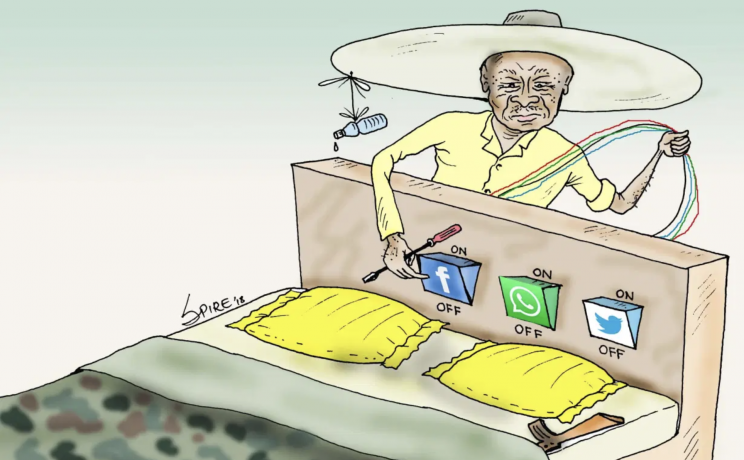Open Letter in response to the Uganda Communications Commission’s New Regulations
Open Letter in response to the Uganda Communications Commission’s New Regulations

We, the members of the NetRights Coalition, have noted with great concern, the Public Notice issued by the Uganda Communications Commission (UCC) on September 7, 2020 “advising all persons currently offering or planning to commence the provision of online data communication and broadcasting services including but not limited to blogs, online televisions, online radios, online newspapers, audio over IP (AoIP), Internet Protocol TV (IPTV), Video on Demand (VoD), Digital Audio radios and televisions, internet/web radio and interview/web television, to obtain authorization from UCC before providing such services to the public.” This process of registration has the adverse effect of deterring bloggers from blogging, promoting self censorship and stifling media practitioners who work to exercise their mandate of disseminating information.
The NetRights Coalition is a network of organizations with a shared vision of promoting digital rights in Africa. Our concern is premised on that any law requiring a blogger to register for the purpose of regulating bloggers is an attack on freedom of expression and inconsistent with the spirit and provisions of Article 29 of the Constitution of Uganda, 1995, Article 19 of the International Covenant on Civil and and Political Rights and Article 9 of the African Charter on Human and Peoples’ Rights which guarantee the right to freedom of expression; including the freedom to seek, receive and impart information and ideas of all kinds, regardless of frontiers, either orally, in writing or in print, in the form of art or through any other media of his choice.
We regret that the notice is an affront to the freedom of the media and the freedom of expression in Uganda both of which form the foundation of a liberal and civilized society. It is our considered view that if the UCC is concerned about the regulation of communication services in Uganda, there are various ways through which the same can be achieved without jeopardizing the rights and freedoms accorded to the people of Uganda by the country’s supreme law – the Constitution.
While we appreciate and recognise the statutory mandate of the Uganda Communications Commission, which among others, entails licensing, regulating and setting standards for the provision of all communication services in Uganda, we are deeply concerned that the Commission has issued such a notice unilaterally and without proper consultations, public participation and involvement of key stakeholders. According to Principle 17(4) of the Declaration of Principles on Freedom of Expression and Access to Information adopted by the African Commission on Human and Peoples’ Rights in November 2019, “a multi-stakeholder model of regulation shall be encouraged to develop shared principles, rules, decision-making procedures and programmes to shape the use and evolution of the internet.”
We join other stakeholders and the people of the Republic of Uganda in condemning this citizen-unfriendly order and hereby urge you to unconditionally withdraw this order and initiate a stakeholder engagement process. Embracing a multi-stakeholder approach that allows for input from different stakeholders will ensure a policy that while fulfilling stated objectives, also promotes freedom of expression and privacy of vulnerable groups including women, persons with disabilities (PWDs), etc.
Signed By:
- African Academic Network on Internet Policy
- Paradigm Initiative
- Women of Uganda Network
- Civil Society Advocacy Network on Climate Change and the Environment Sierra Leone
- Rwanda Youth Clubs for Peace Organization.
- ASUTIC Senegal
- TechHer
- Give1 Project Gambia
- Centre for Legal Support, The Gambia
- African Declaration on Internet Rights and Freedoms Coalition
